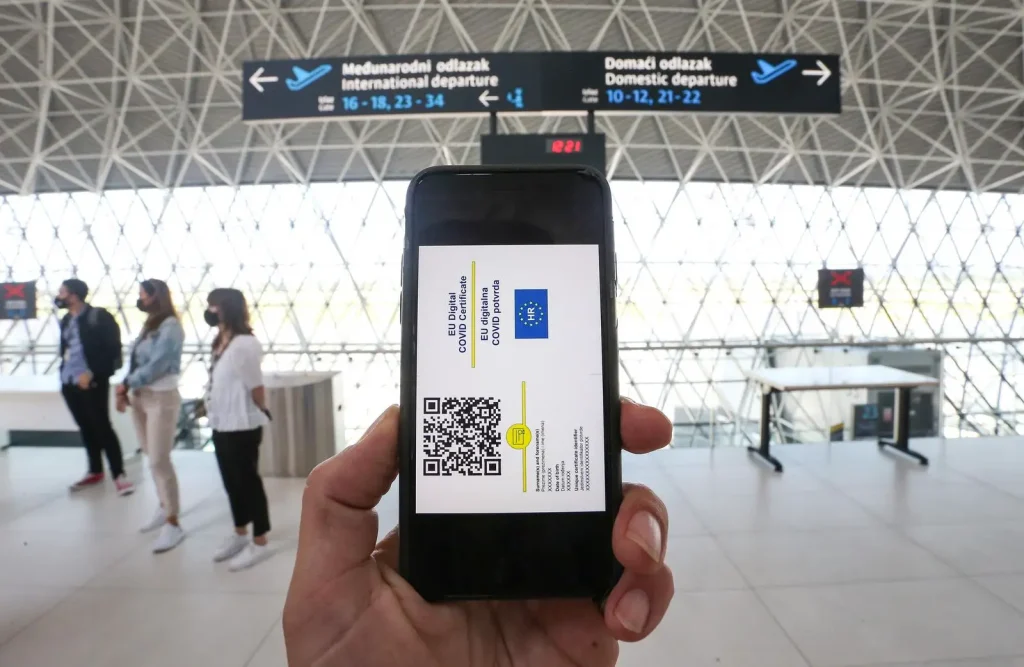Yesterday, the European Commission announced a proposal according to which all members of the European Union would allow only vaccinated, recovered, or necessary travelers to enter, reports HrTurizam. In light of the expected progress in vaccination campaigns around the world, the Commission, from 1 March 2022, proposes a simplified approach, which depends entirely on the status of the passenger and not on the country of departure.
In addition, visitors entering one of the EU countries will have to prove that they were vaccinated no more than nine months ago. Namely, the Commission proposes a standard acceptance period of nine months for vaccination certificates issued after the end of the primary vaccination series. The nine-month period takes into account the guidelines of the European Center for Disease Prevention and Control (ECDC) on the use of six-month doses and provides for an additional period of three months.
Those who have recovered from COVID-19 within 180 days before the trip and have either an EU digital COVID certificate or a certificate considered equivalent, should also be able to travel to the European Union from 10 January 2022.
The revised rules clarify that children between the ages of 6 and 17 should be able to travel to the EU with a negative PCR test done before departure even if they have not been vaccinated. Member States could require additional post-arrival testing, quarantine, or self-isolation. Test and vaccination are not required for children under 6 years of age.
The Council’s recommendation covers all Member States (except Ireland), as well as the four non-EU countries that have acceded to the Schengen area: Iceland, Liechtenstein, Norway, and Switzerland.
Coordinated approach for safer travel
“Based on our common tool, the EU digital COVID certification, which has become a true standard, we are moving to a person-based approach. Our main goal is to avoid different measures throughout the EU. This also applies to the issue of boosters, which will be essential to fight the virus. Among other measures, we propose that the Council harmonize the standard validity period of vaccination certificates issued after the primary batch,” said Justice Commissioner Didier Reynders.
“EU digital COVID certification and our coordinated approach to travel measures have greatly contributed to safe free movement, with the protection of public health as our priority. We have vaccinated over 65% of the total EU population, but that is not enough. There are still too many people who are not protected. In order for everyone to travel and live as safely as possible, we urgently need to achieve significantly higher vaccination rates,” added Health and Food Safety Commissioner Stella Kyriakides.
What the European Commission proposes:
- Focus on the “person-based approach”: a person holding a valid EU digital COVID certificate should in principle not be subject to additional restrictions, such as tests or quarantine, regardless of where you leave the EU. Persons without an EU digital COVID certificate could be required to undergo testing before or after arrival.
- Standard validity of vaccination certificates: to avoid different approaches. The Commission proposes a standard acceptance period of nine months for vaccination certificates issued after the end of the primary vaccination series.
- Additional (booster) vaccination: for now there are no studies that specifically dealt with the efficiency boosters to transfer COVID-19 and is therefore not possible to determine the period of acceptance for them. However, given the new data, it can be expected that protection against supplementary vaccination may last longer than that resulting from the primary vaccination series.
- The EU traffic-light map has been adapted: combining new cases with the use of vaccines in the region. The map would mainly serve for information purposes, but would also serve to coordinate measures for areas with particularly low, green, or particularly high, dark red levels of virus circulation. Special rules would apply to these areas, derogating from the “person-based approach”. No restrictions should apply to travelers from “green” areas.
- Exemptions from certain travel measures should apply to cross-border travelers, children under the age of 12, and emergency travelers. The list of necessary passengers should be reduced as many who were included in the current list have meanwhile had the opportunity to be vaccinated.
- Simplified “emergency braking” procedure: an urgent procedure designed to delay the spread of possible new variants of COVID-19 or to address particularly serious situations should be simplified and more operational.
In order to allow sufficient time for the implementation of the coordinated approach, the Commission proposes that the innovations be applied from 10 January 2022.
For more on flights to Croatia and other travel announcements, make sure to check out our dedicated travel section.
For all you need to know about coronavirus specific to Croatia, make sure to bookmark our dedicated COVID-19 section and select your preferred language.











